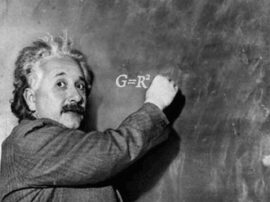Former President John F. Kennedy once stated, “My fellow Americans, ask not what your country can do for you – ask what you can do for your country.” In Judaism we say, “Ask not what your brother can do for you – ask what can you do for your brother,” as we see in this week’s Torah portion, Vayera.
Each of our forefathers – Abraham, Issac, and Jacob – was known for excelling in a particular character trait. In this week’s Torah portion we get a close-up look at our founding father Abraham’s exemplary trait. Abraham excelled at doing chesed, performing acts of kindness. For example, he was known to have an open house. Any wayfarer who needed a place to rest his weary bones and reenergize knew he or she was welcome at “Abraham and Sarah’s Place”. The Torah highlights Abraham’s unique character refinement with one particular incident. His kindness certainly appears to be impressive; but a closer look reveals that the Torah is actually citing a somewhat puzzling example to teach us that Abraham was the paradigm of chesed.
Let us study the story in brief: Abraham was sitting outside his tent looking for guests to invite inside. But there were no guests to be found! This was the third day after Abraham had received his circumcision, which is said to be the most painful phase of the recovery. G-d didn’t want Abraham to be burdened with his usual responsibility of taking care of all his guests. So G-d caused it to be an exceptionally hot day, so not a soul would venture out in the sweltering heat. However, not being able to perform his usual acts of kindness disturbed Abraham greatly. When G-d saw how disappointed Abraham was, He sent three angels in the guise of humans. Upon seeing them, Abraham enthusiastically jumped up and invited them in. They accepted the invitation and were given the royal treatment. The Torah delineates for us exactly what Abraham prepared for them to eat and drink, as well as how he waited on them for their every need.
Your initial reaction is probably: Wow! Truly amazing! Abraham didn’t even know these “people,” yet look how much he went out of his way to do all this chesed – kindness – for total strangers.
But the truth of the matter is that, out of all the acts of kindness that Abraham performed in his life, it is quite puzzling why this is the one showcased for us in the Torah. It would be understandable for the Torah to recount a story where the recipients of Abraham’s kindness were real human beings who really needed and could appreciate all that Abraham did for them. But why choose a story where the recipients of the kindness were spiritual entities that didn’t really benefit at all?
The reason why the Torah chose this incident is because this particular incident teaches us the most fundamental qualities of true chesed. When Abraham discovered G-d, he wished to create a relationship with Him. We know from the world around us that one of the keys to forming a relationship is compatibility. If there is no compatibility, chances are the relationship will not go too far. However when two parties share similar traits of personality, upbringing, culture, goals in life, etc., the relationship has a much better chance of thriving. With this in mind, Abraham said to himself, “I will study the ways of G-d. I will try to emulate Him to the best of my ability, thereby creating compatibility. By becoming ‘similar’ to G-d, on a human level, I will form a relationship with Him.” One of the aspects of G-d that stood out to Abraham was His extreme kindness to the world, from the food He provides every human creature to the materials He provides for clothing and shelter and so on. This truly impressed Abraham, so he chose to emulate G-d by engaging in as many acts of kindness as he could towards his fellow man.
This teaches us what chesed, kindness, truly is. As I once saw it succinctly put, “It’s mathematically improbable, but the more you give of yourself, the more you gain”. When a person performs an act of chesed, he or she, as the giver, may actually be gaining more than the receiver by emulating G-d, becoming more “G-d–like,” and thereby forming a stronger relationship with Him.
Therefore the Torah specifically chose a story where the recipients of Abraham’s chesed didn’t benefit at all – to teach us that, in essence, the giver is the one who truly gains. te-right

